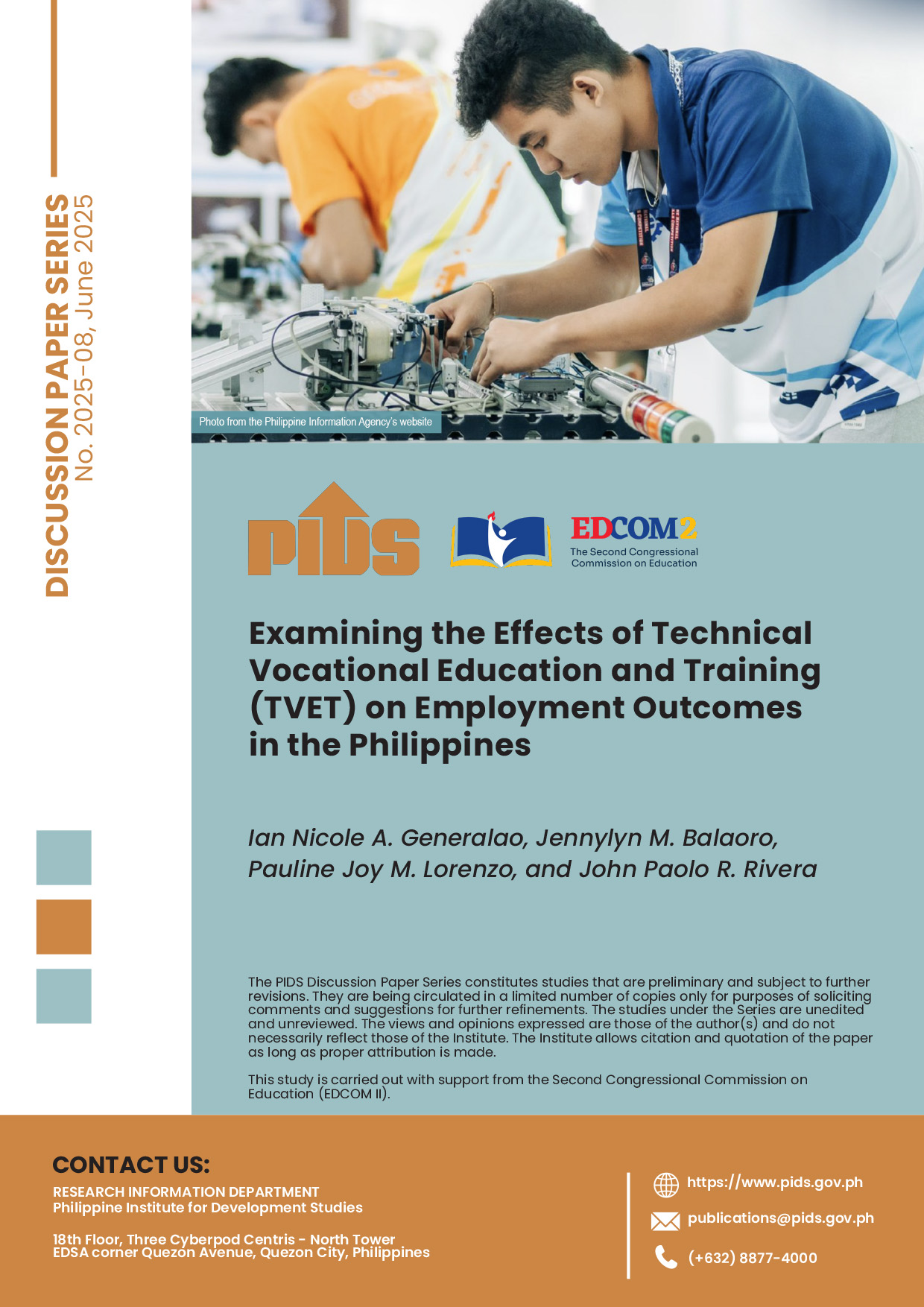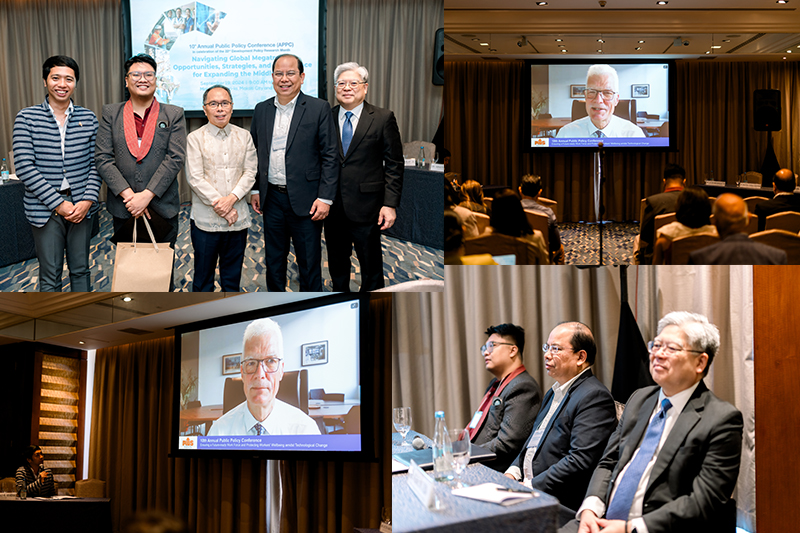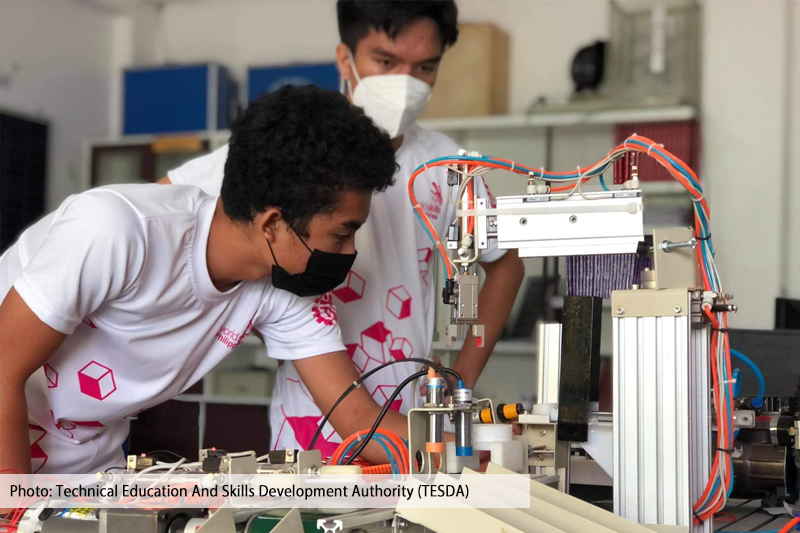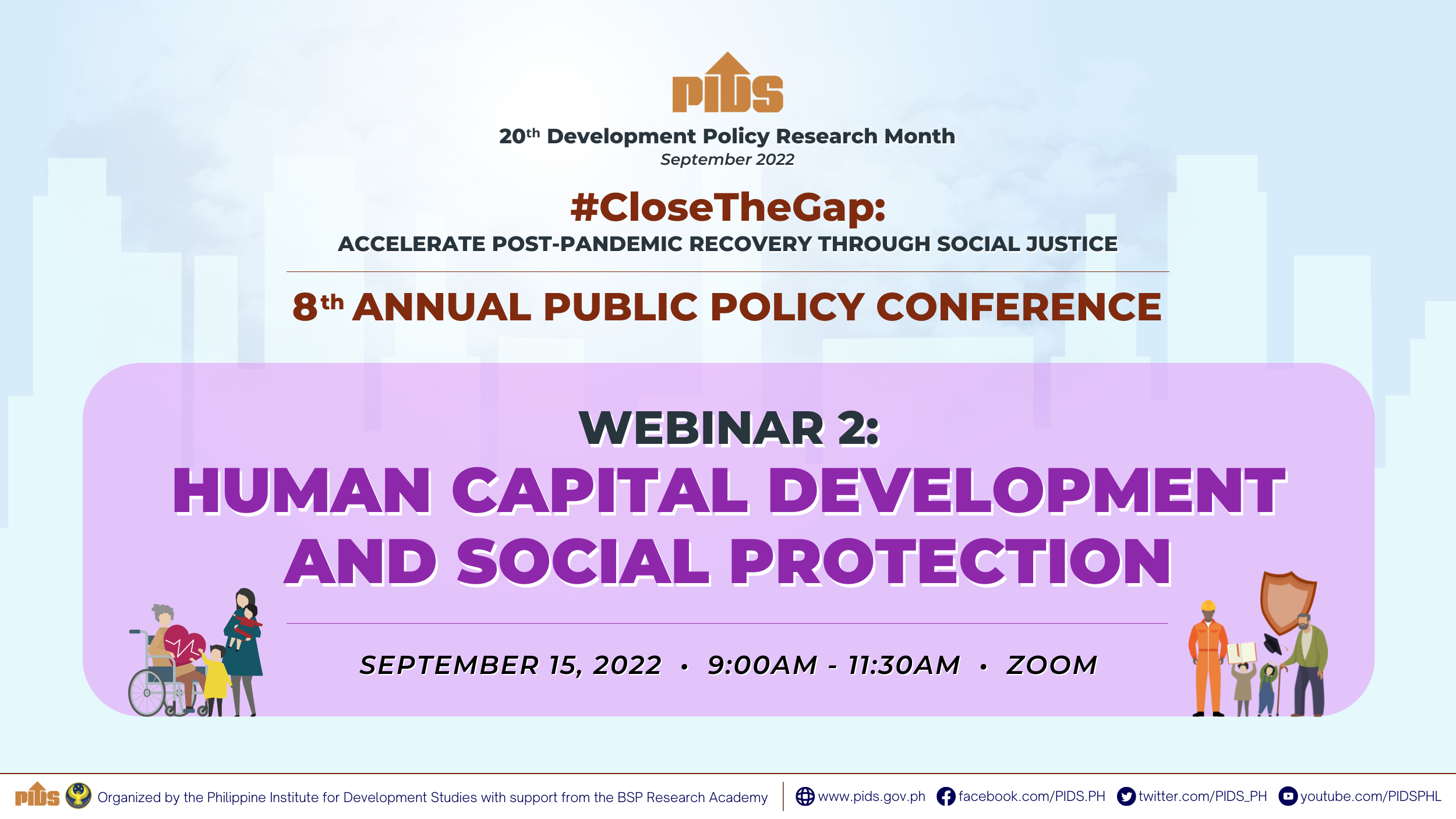There`s a “glimmer of hope” for inclusive growth with the government taking steps particularly in the area of labor and industrial policy as well as human capital development.
PIDS President Gilberto Llanto made this assessment Tuesday (September 23, 2014) as he wrapped up the 12th Development Policy Research Month (DPRM) Seminar that tackled labor policy reforms, the revival of the manufacturing industry, and issues in the educational sector. The seminar was the highlight of the nationwide DPRM observance, spearheaded by PIDS in September every year.
Llanto cited the Industry Development Program being spearheaded by the Department of Trade and Industry (DTI), under which sectoral roadmaps were consolidated into a Manufacturing Industry Roadmap that seeks to hike manufacturing`s contribution to both value added and employment. “Our neighbors have relied on labor-intensive manufacture to grow their economy and have taken advantage of regional production networks. Their economy grew and their people have gotten out of the poverty trap and have enjoyed higher standard of living,” Llanto said.
Resource persons at the DPRM seminar held at NEDA sa Makati Building, titled “Forum on Addressing the Jobs Challenge toward Inclusive Growth”, included PIDS Senior Research Fellows Aniceto Orbeta and Rosario Manasan, PIDS Visiting Research Fellow Vicente Paqueo, Benjamin Dalumpines of the Institute for Labor Studies (ILS), Executive Director Ma. Corazon Dichosa of the DTI Investment Policy and Planning Service, and Executive Director Marissa Legaspi of the Technical Education and Skills Development Authority (TESDA).
Dichosa said some 50 separate roadmaps outlining measures to enhance competitiveness would be ready by next year, including the 30 earlier submitted to the DTI. “The government is pursuing an industrial policy that promotes the resurgence of an international competitive manufacturing sector,” she said. The long-term vision is to become hubs in regional and global production networks for auto, electronics, machinery, garments, food, and others.
Llanto said the consolidated roadmap, crafted by PIDS, should spur the development of small and medium enterprises (SMEs) that would help address poverty and inequality. Development of SMEs is a pillar of the envisioned ASEAN Economic Community or AEC, Llanto noted.
TESDA`s Legaspi presented the Philippine Qualifications Framework, which will facilitate mobility of labor within the region through the ASEAN mutual recognition arrangements. The framework, which aims to adopt national standards and levels of outcomes of education, is an important step toward addressing the problem of job-skills mismatch, Legaspi said.
PIDS Senior Research Fellow Rosario Manasan, for her part, called for a more efficient allocation of resources in the educational sector, pointing out that many state universities and colleges (SUCs) recorded zero board examination passing rates during the years 2005-2011, and the list of SUCs with passing rates below the national average is even longer. Fifty to 90 percent of programs offered are outside the mandates of SUCs, Manasan noted. “Faculty development is key to improving quality,” she said.
PIDS President Gilberto Llanto made this assessment Tuesday (September 23, 2014) as he wrapped up the 12th Development Policy Research Month (DPRM) Seminar that tackled labor policy reforms, the revival of the manufacturing industry, and issues in the educational sector. The seminar was the highlight of the nationwide DPRM observance, spearheaded by PIDS in September every year.
Llanto cited the Industry Development Program being spearheaded by the Department of Trade and Industry (DTI), under which sectoral roadmaps were consolidated into a Manufacturing Industry Roadmap that seeks to hike manufacturing`s contribution to both value added and employment. “Our neighbors have relied on labor-intensive manufacture to grow their economy and have taken advantage of regional production networks. Their economy grew and their people have gotten out of the poverty trap and have enjoyed higher standard of living,” Llanto said.
Resource persons at the DPRM seminar held at NEDA sa Makati Building, titled “Forum on Addressing the Jobs Challenge toward Inclusive Growth”, included PIDS Senior Research Fellows Aniceto Orbeta and Rosario Manasan, PIDS Visiting Research Fellow Vicente Paqueo, Benjamin Dalumpines of the Institute for Labor Studies (ILS), Executive Director Ma. Corazon Dichosa of the DTI Investment Policy and Planning Service, and Executive Director Marissa Legaspi of the Technical Education and Skills Development Authority (TESDA).
Dichosa said some 50 separate roadmaps outlining measures to enhance competitiveness would be ready by next year, including the 30 earlier submitted to the DTI. “The government is pursuing an industrial policy that promotes the resurgence of an international competitive manufacturing sector,” she said. The long-term vision is to become hubs in regional and global production networks for auto, electronics, machinery, garments, food, and others.
Llanto said the consolidated roadmap, crafted by PIDS, should spur the development of small and medium enterprises (SMEs) that would help address poverty and inequality. Development of SMEs is a pillar of the envisioned ASEAN Economic Community or AEC, Llanto noted.
TESDA`s Legaspi presented the Philippine Qualifications Framework, which will facilitate mobility of labor within the region through the ASEAN mutual recognition arrangements. The framework, which aims to adopt national standards and levels of outcomes of education, is an important step toward addressing the problem of job-skills mismatch, Legaspi said.
PIDS Senior Research Fellow Rosario Manasan, for her part, called for a more efficient allocation of resources in the educational sector, pointing out that many state universities and colleges (SUCs) recorded zero board examination passing rates during the years 2005-2011, and the list of SUCs with passing rates below the national average is even longer. Fifty to 90 percent of programs offered are outside the mandates of SUCs, Manasan noted. “Faculty development is key to improving quality,” she said.











